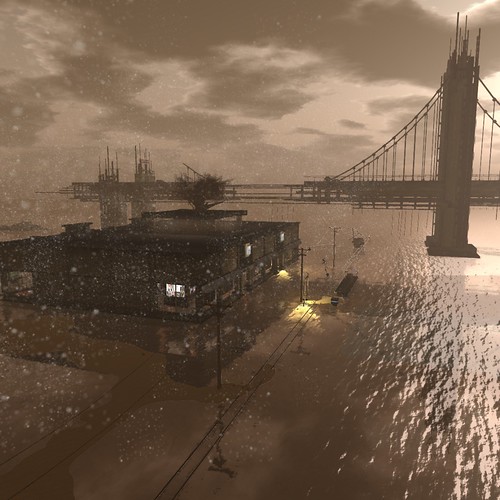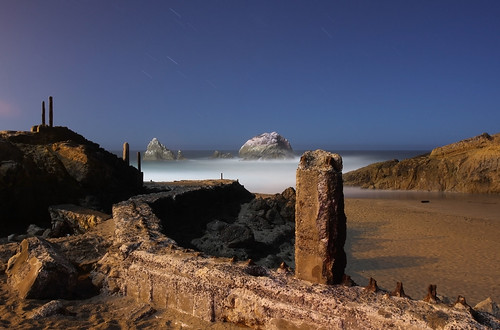It has come to my attention, during my various adventures in writer and reader forums around the Internet, that lots people -- even some authors -- don't actually know what a dystopian society is. It's not really a big deal...until you start incorrectly marketing your work as something it's not. It's true that a lot of readers might not know the difference, but plenty of them will. The readers aren't the ones who are going to look bad for not understanding the genre...you are. It's time to find out just exactly what makes a dystopian book dystopian. Don't assume you already know; you might be one of the people who made me sigh recently with a forum post.
Dystopian Society
If you want to get technical about it, calling something "dystopian" isn't altogether accurate anyway. More properly it ought to be referred to as a dystopian society, and that's the first piece of really important information you need to know. Dystopian books and stories of all kinds are deeply rooted in the society itself; often, authors will present the readers with a world view of this society through the eyes of a main protagonist.
What's characteristic of a dystopian society? For starters, the people who live within it are being oppressed and usually wholly controlled by some sort of all-powerful government or collective. Control is the most important word here, and one of the defining characteristics of a dystopian society. In many cases, there are at least two distinct classes present in such stories: the people who are being controlled, and those who are doing the controlling. This type of society is also called anti-utopian, and the word itself is derived from the Greek word for "bad."
Dystopian vs. Post-Apocalyptic Societies
It seems to me, after wading through all the confused readers and writers on the forums (which shall not be named), that the big stumbling block in all this is post-apocalyptic societies. People who don't fully understand the idea of a dystopian society seem to think that dystopian societies are identical to post-apocalyptic societies, that in fact the two go hand-in-hand. This is patently incorrect.
A post-apocalyptic society isn't necessarily dystopian. In this type of society, some horrible event has occurred which has fundamentally changed the world on a global scale. Nuclear war, catastrophic weather events, alien invasion -- take your pick. Often, a new society rises in this new world in place of the old society...but there's no reason to presuppose that this new society is dystopian simply because the Apocalypse has occurred.
The Necessary Separation
I'm going to go ahead and blame lots of the current confusion on The Hunger Games, though let me add that I have nothing against Suzanne Collins or her work or her fans or anything else that has to do with her books. In The Hunger Games, a society which is both dystopian and post-apocalyptic is the setting for the events which take place. However, readers and writers should not take this to mean that all post-apocalyptic societies are dystopian, or vice versa.
I recently saw a list of "favorite dystopian movies" which included such films as Waterworld. This is not a correct classification of this film, based on my somewhat hazy memory and cursory research. As I understand it, the "bad guys" in this film are pirates...and not government officials. People are not being controlled. They're just trying to figure out life on the water. Also on the list: The Postman, The Book of Eli and Repo! The Genetic Opera. Two of these films are post-apocalyptic, and there is little to no mention of the government in them. One of these films is dystopian, but not post-apocalyptic.
Your Role as an Author
What do you look for if you want to know the difference? Control. Catastrophe marks post-apocalyptic stories; control marks dystopian stories. Knowing the difference is important if you're going to write a story that's one, the other, or both. If I go shopping for some all-hell-has-broken-loose post-apocalyptic fare and find a bunch of dystopian stories instead, I'm not just going to hate you as the writer who got it wrong.
I might hate all indies, because I might think that none of them have any idea what they're talking about. So don't be that guy. Know your business, know your genre, know your categories. Know what the heck you're writing, and how to identify it. If you don't identify it properly, you're not going to like the way you get identified as an author hack. Never forget that the title author is absolutely necessary for the word authoritative. That is not a mistake.


























